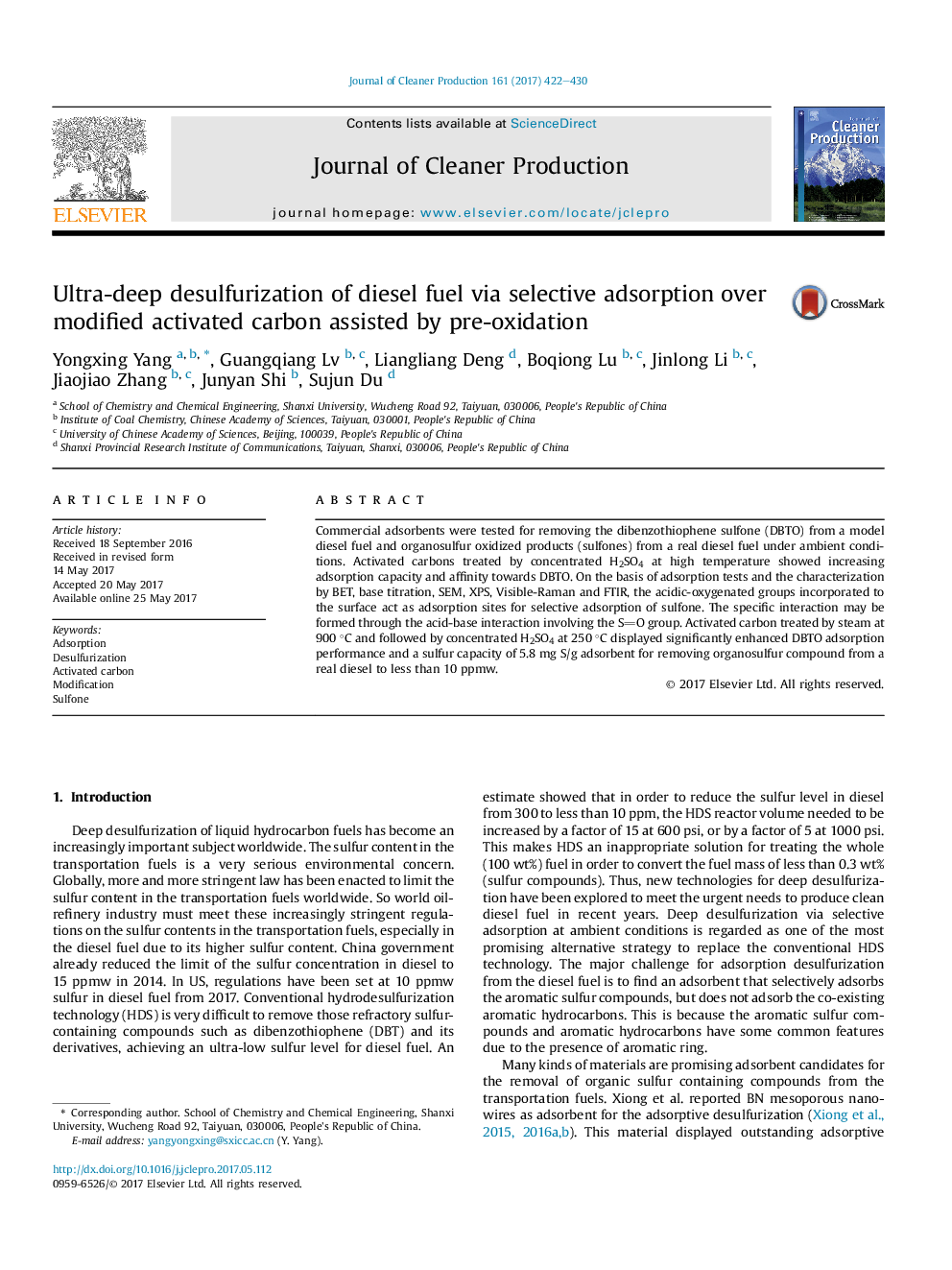| Article ID | Journal | Published Year | Pages | File Type |
|---|---|---|---|---|
| 5480850 | Journal of Cleaner Production | 2017 | 9 Pages |
Commercial adsorbents were tested for removing the dibenzothiophene sulfone (DBTO) from a model diesel fuel and organosulfur oxidized products (sulfones) from a real diesel fuel under ambient conditions. Activated carbons treated by concentrated H2SO4 at high temperature showed increasing adsorption capacity and affinity towards DBTO. On the basis of adsorption tests and the characterization by BET, base titration, SEM, XPS, Visible-Raman and FTIR, the acidic-oxygenated groups incorporated to the surface act as adsorption sites for selective adsorption of sulfone. The specific interaction may be formed through the acid-base interaction involving the SO group. Activated carbon treated by steam at 900 °C and followed by concentrated H2SO4 at 250 °C displayed significantly enhanced DBTO adsorption performance and a sulfur capacity of 5.8 mg S/g adsorbent for removing organosulfur compound from a real diesel to less than 10 ppmw.
